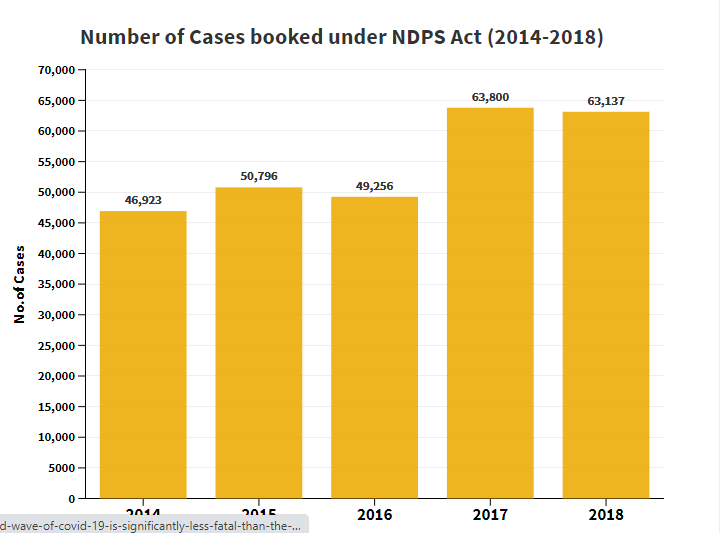Cannabis ‘Not a Dangerous Narcotic’. What does the UN Reclassification Mean?
“I have shifted my daughter to California for higher studies because marijuana is legal there,” a former mayor of Vancouver told me at a Mayor’s Congress in Seoul a few years ago. The statement came as a bit of a shock to me. I asked her what she meant. Did she actually nudge her daughter to consume ‘marijuana’? She said yes, saying that it was better she consumed cannabis (one of many names for marijuana) than any other intoxicant, which could make her violent. “At least marijuana will not make her violent, and moreover, it is organic,” she added.
I do not intend to comment on the merit of this statement, but it is a hard fact that marijuana is consumed widely, both legally and illegally, across the world. A recent development in the international corridors has drawn attention to the issue.
In its 63rd session on December 2, 2020, the United Nations “opened the door to recognising the medicinal and therapeutic potential of the drug, although its use for non-medical and non-scientific purposes will continue to remain illegal.” Even India voted for its re-classification. The decision was taken by the UN Commission on Narcotics Drugs (CND). It is now being presumed now that this will lead to changes in the way cannabis is regulated internationally, and in India.
Cannabis has been removed from Schedule IV of the 1961 Single Convention on Narcotic Drugs. Cannabis and cannabis resin were removed from this Schedule and its “strictest control measures.” Earlier, the use of cannabis was discouraged for even medicinal purposes. Over 50 countries, however, allowed cannabis for medicinal use and nearly 15 have even allowed for recreational use; these countries include Uruguay, Canada(later) and a few states in US.
Is the Plant Criminal? What does it Mean for India?
According to the 1961 Single Convention on Narcotics, marijuana was controlled. Interestingly, the signatory nations were supposed to criminalise “cultivation, production, manufacture, extraction, preparation, possession, offering, offering for sale, distribution, purchase, sale, delivery on any terms whatsoever, brokerage, dispatch, dispatch in transit, transport, importation and exportation of drugs.”
The NDPS (Narcotic Drugs and Psychotropic Substances) Act, 1985, was passed by the Rajiv Gandhi government with penal provisions in case cannabis was found in one’s possession, sold or if one grew the plant.
There are thousands of cases registered under the NDPS Act in the country each year.

It is difficult to ascertain how many of the above cases were for consuming, producing or selling cannabis alone. However, it is safe to say that the number would constitute a fairly large portion of the cases each year.
Under the NDPS Act, even growing cannabis is an offence, which leads to a situation where the plant itself is criminalised. However, without going into the international conventions, a crusader against drugs in Shimla has observed that there was no need to wait for the 63rd session of the CND. The NDPS Act allows for selective use of cannabis.
According to Section 14 of the NDPS Act:
14. Special provision relating to cannabis.: Notwithstanding anything contained in section 8, Government may, by general or special order and subject to such conditions as may be specified in such order, allow cultivation of any cannabis plant for industrial purposes only of obtaining fibre or seed or for horticultural purposes.
Successive governments in the country have not been looking into this aspect of the section, which allows for growing cannabis for medical/industrial and even horticultural purposes. Rather, government after government criminalised every aspect of cannabis.
Farmers’ Fervent Demads
When I was the Himachal state president of the All India Kisan Sabha, a lot of farmers used to demand the legalisation of cannabis production for horticulture and agriculture/allied purposes. The demand was raised several times in the state and even in the state legislature by elected legislators, but, owing to a federal law, nothing could be done at the state level.
Before cannabis was brought under the penal provisions of the NDPS Act, farmers used to grow it widely for domestic use. From roots to seeds, they say that every part of the plant is useful. According to psychiatrists, the plant’s roots have high medicinal value and are used for treating patients with extreme abnormality. The stem of the plant is used to make boots which are worn during winter and for making ropes, which has multiple uses in the villages; the seeds, with high protein value, are eaten or ground to make chutney and used in siddu (local momos). Hence, this plant is considered essential by farmers.
How the Indian government intends to bring in the changes with respect to the use of cannabis is yet to be seen, but before taking a decision, widespread consolations are required. Another area which requires elaborate discussion is about recreational use. Malana, a village in Kullu that produces the best quality of bhang is known throughout the country for the illegal supply of bhang for recreational use.
How much recreation is good recreation? It is difficult to answer this question. We must not blindly follow what the rich nations profess. We have seen how, during Reagan’s war on drugs, we (Indian government under Rajiv Gandhi) brought it under the NDPS Act and banned cultivation of cannabis even for agri-horticulture purposes.
After 35 years, the same set of nations are bringing up the issue for various reasons, and we should not blindly follow the rules and bring about changes in our laws. Our cultural and traditional methods of consumption are quite different from theirs.
Take for example smoking bhang for recreational use, which is not taboo in the mountains, where everyone in the family would smoke together, thus limiting use and access. They have been doing this for ages. There are conventional antidotes in age-old wisdom that ensure minimum damage. However, commercial use may bring the problem of limitless supply, thereby putting the younger generations at risk.
This does not discount the fact that the younger generation must be given an opportunity to experiment, but under some parameters, else the damage could be irreparable.
So, what does this change in the international arena mean for India? We cannot be sure. We will have to wait and ensure that changes are brought about through widespread consultation.
The author is former deputy mayor of Shimla. The views are personal.
Get the latest reports & analysis with people's perspective on Protests, movements & deep analytical videos, discussions of the current affairs in your Telegram app. Subscribe to NewsClick's Telegram channel & get Real-Time updates on stories, as they get published on our website.
























